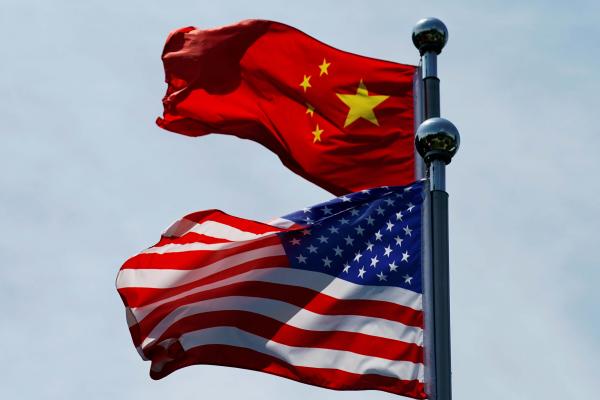On April 14, Congress member Matt Gaetz (R-Fla.) asserted on Tucker Carlson’s Fox News show that China's Wuhan Institute of Virology may have "birthed a monster," suggesting that this lab was responsible for the COVID-19 pandemic. His statement goes against commonly held views of scientists and U.S. intelligence agencies. Nevertheless, a reporter pursued the topic a few days later at a White House briefing, telling President Donald Trump that the National Institutes of Health (NIH) gave the Wuhan lab a $3.7 million grant during Barack Obama’s presidency. She asked why the U.S. would give a grant like that to China.
Ultimately, a set of unsubstantiated claims pushed the U.S. National Institutes of Health (NIH) to abruptly cut its funding of the New York-based EcoHealth Alliance — a global environmental health nonprofit that has been working on zoonoses research for about 50 years. EcoHealth’s work also includes a 15-year collaboration with the Wuhan Institute of Virology.
In an interview with CBS's 60 Minutes, Peter Daszak, President of EcoHealth Alliance, said that Remdesivir, the breakthrough drug that seems to have some impact on COVID-19, “was actually tested against the viruses we discovered under our NIH research funding.” It was the collaboration between EcoHealth and the Wuhan lab that helped with this breakthrough, he added.
“There is zero evidence that this virus came out of a lab in China,” Daszak noted in the CBS interview, adding that as a result of half-baked claims about this theory, his team is now facing layoffs.
“This politicization of science is really damaging,” Dazak said in the interview. He explained that communication between scientists in China and scientists in the U.S. has essentially shut down, eliminating opportunities for the U.S. to learn from China’s response to the virus. “It's sad to say, but it will probably cost lives,” Dazak said. “By sort of narrow-mindedly focusing in on ourselves, or on labs, or on certain cultural politics, we miss the real enemy.”
As of today, EcoHealth's collaborative work with the Wuhan Institute has come to a halt because the NIH has revoked its grant to EcoHealth.
In response to queries sent by Sojourners to NIH about how it appears that the funding cut was the result of unsubstantiated claims about the origin of the virus and was also probably politically motivated, NIH said that it “does not discuss internal deliberations on grant terminations,” but it noted that the grant to EcoHealth was terminated and also pointed out that EcoHealth made sub-awards to Wuhan Institute of Virology (Wuhan), East China Normal University (Shanghai), the Institute of Pathogen Biology (Beijing), and Duke-NUS Medical School (Singapore).
NIH added that it continues to support research on the transmission of emerging viruses from animals to humans (zoonoses), a significant threat to public health and biosecurity. Further details about NIH-funded zoonoses research are available at NIH RePORTER database.
Importance of cross-country collaboration in zoonoses research
“All One Health research is multidisciplinary, so collaboration is an inherent concept,” explained Pranav Pandit, a Postdoctoral Scholar at the One Health Institute of University of California, Davis.
‘One Health’ refers to a cross-disciplinary framework that brings together experts working in human health, animal health, plant health, and the environment. In 2008, the World Health Organization officially recommended this framework as an approach to deal with zoonotic infectious diseases.
Pandit explained that such collaborations bring together human and veterinary doctors, researchers with backgrounds in forestry, social scientists, policy makers, and members from the concerned communities.
“The whole point of One Health is that you come out of your silos and work in a collaborative model,” explained Abi T. Vanak, a senior fellow at the Ashoka Trust for Research in Ecology and Environment (ATREE), and lead of India’s One Health and Zoonoses program.
It’s a “many eyes” approach that “look[s] at a problem from multiple viewpoints to better understand the whole of problem,” Vanak said. For example, Vanak elaborated, “A virologist might discover a new virus, but without understanding the lifecycle of the animal that hosts the virus, without understanding the ecological dynamics of the landscape in which the host lives, without understanding the interactions of the host with other animals, and without understanding the behavior of the people who live in that landscape and who are at risk from getting infected by this virus, it is very difficult to get a good understanding of the threats posed by virus.”
Speaking about the funding cut to EcoHealth, Vanak said, “It's unfortunate … when you cut funding to such programs, you are essentially taking your foot off the pedal at a time when you really need to be accelerating.”
PREDICT is a project by the United States Agency for International Development’s Emerging Pandemic Threats program that was initiated in 2009 and is led by the UC Davis One Health Institute. PREDICT aims to identify viruses before they spillover into human populations. Pandit said that as part of the PREDICT project, they found a new Ebola virus that has yet to be found in people. The team communicated with the local communities about this spillover risk – a rare collaborative effort.
In addition to working with local communities, PREDICT collaborates with scientists from Africa and Asia. Pandit explained that local scientists and other local experts are the ones who really know about the wildlife in the region and the unique interfaces between humans and wildlife from where diseases might spillover.
“If you have trade relations with a country, if you have people travelling between your country and another country, you should also then be doing health collaborations, because you are vulnerable to diseases that might emerge from their countries, and they are vulnerable to diseases that you may carry,” Vanak explained.
Pandit echoed Vanak’s insistence on cross-country cooperation: “Global collaborations are a must … starting from sharing genomes to developing vaccines and deploying these vaccines throughout the world.” Pathogens, Pandit added, don’t know anything about human borders or boundaries.
Got something to say about what you're reading? We value your feedback!







